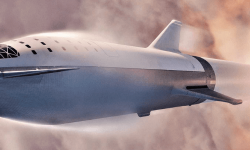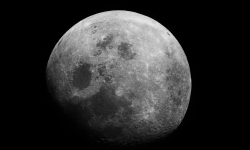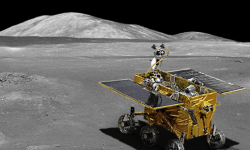
Triton’s geysers will be targeted by the Trident mission or other missions
– News of May 12, 2019 –
Thirty years ago, the Voyager 2 space probe made the unique flyby of Neptune and Triton. The trajectory of the space probe was studied to fly only 40 000 kilometers height above the largest moon in the neptunian system. Almost everything we know about Triton, we learned from this quick encounter.
The photos taken during this flyby show some amazing features. The surface of Triton has few impact craters, which means that the Neptune’s moon is geologically active. Its density and chemical composition are reminiscent of Pluto. This gives credence to the hypothesis that it is a dwarf planet captured by the gravity of Jupiter.
Triton seems largely composed of water ice. It would be very interesting to know if this water is potentially liquid under the surface. During its flight, the Voyager 2 space probe detected geysers. The main purpose of the Trident mission would be to understand these geysers to know if they are the sign of a deep ocean.
To achieve this, the Trident spacecraft would be equipped with two cameras that would allow it to map almost all of Triton in a single flyby. A spectrometer and a magnetometer would provide complementary data.
Other missions are competing to explore Uranus and Neptune. Some missions are much more ambitious but they would also leave later than the Trident mission, around 2030 for an arrival in the 2040s. It may be too late to observe the geysers if they are seasonal. And like Neptune, Triton needs 160 years to do an orbit around the sun. The next opportunity would be in a very long time.
In the best case, we can imagine that the Trident space probe will go scouting while a more ambitious mission with an orbiter would finish its preparation on Earth. Let’s hope that NASA and its partners will have enough money to explore Uranus and Neptune in the best way. But it will probably need compromises.
Image by NASA










